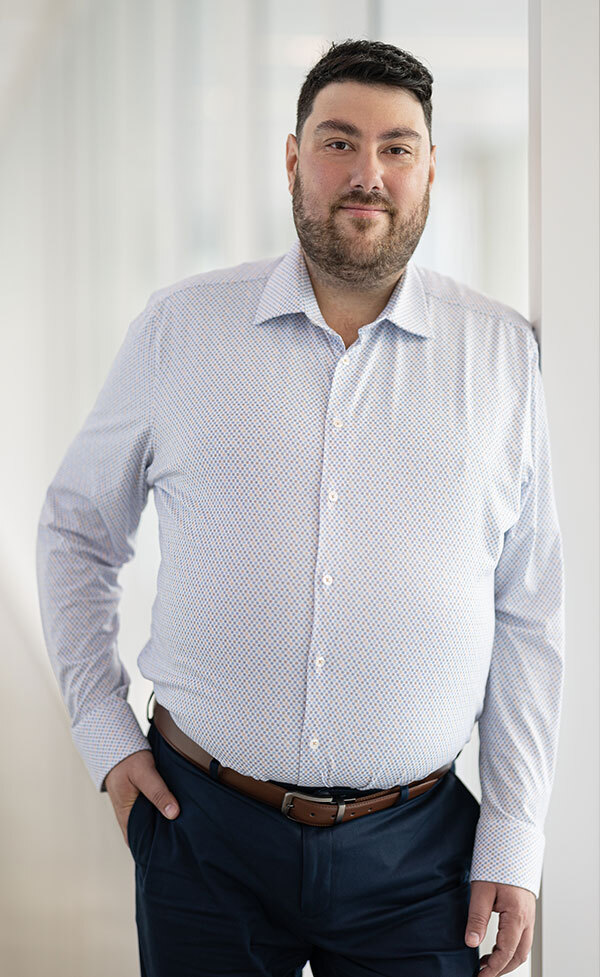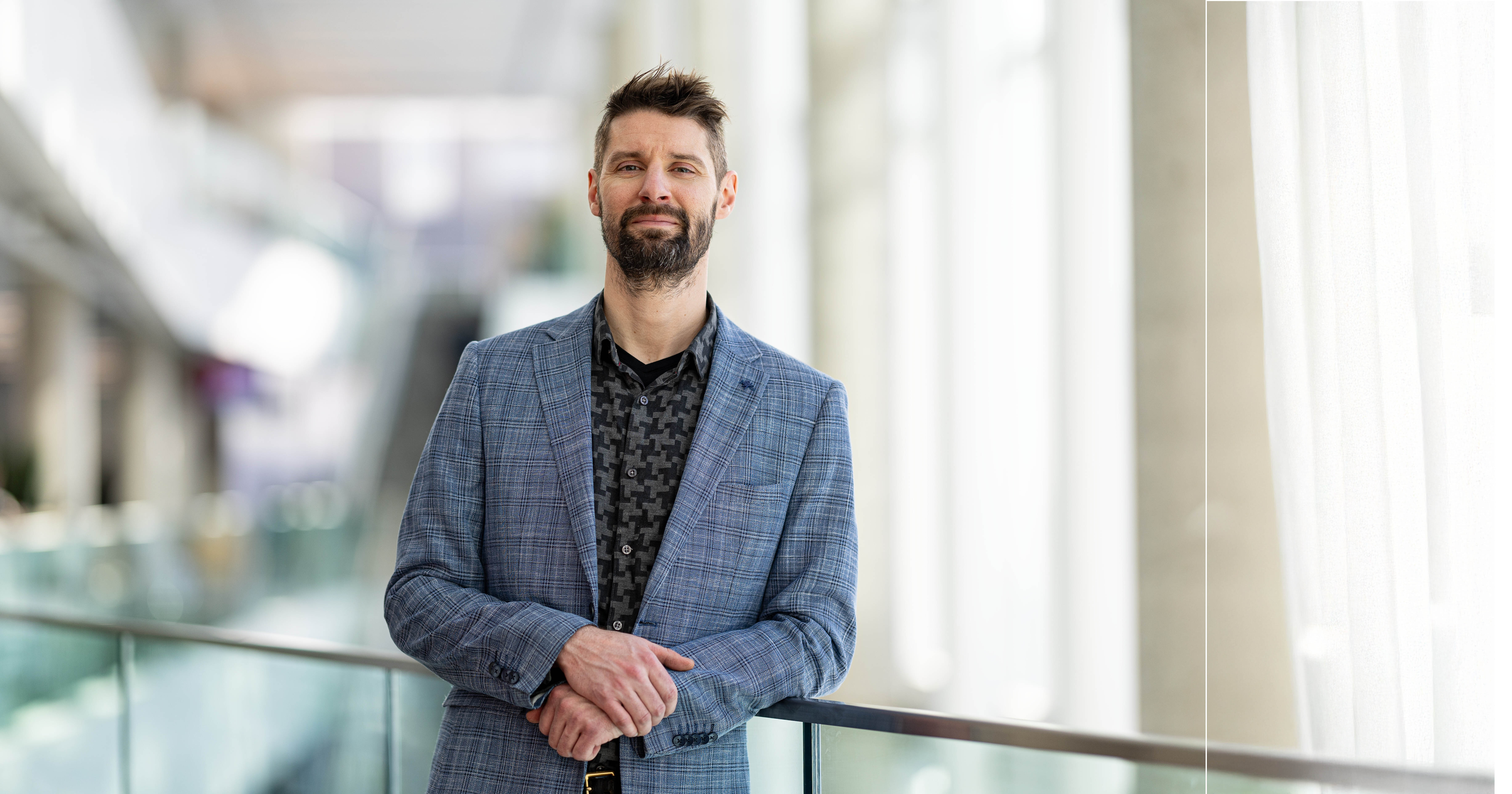
It’s hard to blame anyone for seeking happiness, sometimes even at the expense of others. The pursuit of happiness has haunted philosophers since ancient Greece. For the Platonists, doing good was the way forward. For Christians, happiness lay in the afterlife. For the Sophists, opportunism was a part of being human.
For Thomas Mekhaël, professor of ethics at ÉTS, the sophists’ vision of happiness still prevails today. “In a world where everyone wants to get ahead, how can we learn to collaborate?”
Fascinated from an early age by the quest for balance between justice and the pursuit of happiness, Thomas began university studies in philosophy. Influenced by Hellenistic philosophy, Thomas wrote his thesis on Thrasymachus of Chalcedon. For this sophist, “injustice, if it is on a large enough scale, is stronger, freer, and more masterly than justice.” Only laws can contain such self-centredness.
Thomas Mekhaël earned his master’s degree in 2015 from the University of Montréal, with honours.
His Expertise: Applied Ethics
Few jobs were available after graduation. Despite this, Thomas broadened his field of expertise with a certificate in ethics and law. At the time, the Charbonneau Commission was part of a collective awakening. One thing became clear: the corruption of a few was harming society as a whole, including the corrupt themselves, as the market was in part paralyzed by ballooning costs. Professional ethics became the modus operandi within organizations.
Thomas Mekhaël was then able to go into teaching. Following his involvement in the creation of an ethics course at ÉTS during the pandemic, Thomas received a similar request from Polytechnique Montréal. Then, in 2024, the young lecturer obtained a teaching position in ethics at ÉTS.
A Philosopher in Engineering!

"I am first and foremost a professor,” says Thomas Mekhaël. His research, his concerns, the book he co-authored, L’éthique et le génie québécois, and his lectures always have an educational purpose.
Thomas is pleasantly surprised by the open-mindedness of ÉTS students. The engineering community is regularly faced with moral dilemmas. What do you do when a company that wants to make the most profit asks you to circumvent certain environmental laws to cut costs? The moral obligation to protect the public is part of an engineer’s duty. So, do you lose your job, or do you accept to bend your values? “If we strive to improve the system, we won’t have to resort to personal sacrifice when faced with such a choice again,” says Thomas.
Ethics, a Fast Track to Justice
Thomas Mekhaël gives the example of the Dutch government, which banned trucks from passing vehicles. This measure sparked an outcry, but strangely enough, after a while, truckers found that it took them less time to reach their destination. A study later confirmed that the average capacity of the roads in question had increased by 36%.
What explains this phenomenon? The opportunistic driver who squeezes in between two cars may gain a few seconds, but the whole traffic slows down because the following motorists have to push the brakes to maintain a safe distance. So, yes, this driver proves Thrasymachus right, but by forcing drivers to stay in their lane, the law ensures that everyone wins. A balance between justice and opportunism is possible.
“So, by targeting organizations according to their own values, engineers will have the most positive impact on living together in Quebec,” concludes Thomas Mekhaël.



